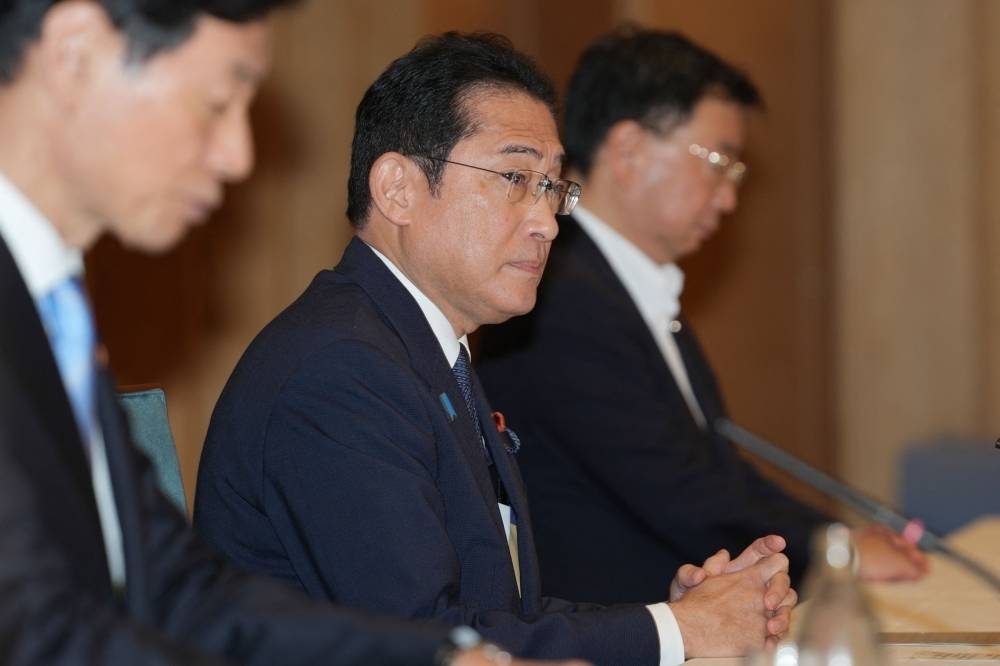The Japanese government will make a decision on Tuesday about the release of treated water from the crippled Fukushima nuclear plant into the sea, a government minister said.
"We would like to hold a meeting of the relevant ministers tomorrow (Tuesday) in order to make a decision on the commencement of the water release after confirming the status of efforts to ensure safety and to address reputational damage," Yasutoshi Nishimura, the economy, trade and industry minister, told a news conference on Monday.
"Relevant ministers will discuss and share information on what next steps should be taken, and based on these discussions, we would like to make a decision about the timing," he said.
Japan's Prime Minister Fumio Kishida said on Sunday during a visit to the nuclear power plant, where three reactors went into meltdown in 2011, that no date had been set.
Around 1.34 million tonnes of water, equivalent to more than 500 Olympic swimming pools, have accumulated since the Fukushima plant was knocked out by an earthquake and tsunami that killed 18,000 people in 2011.
Plant operator TEPCO says that with around 1,000 steel tanks now full of water, space has run out and that it wants to gradually start discharging the water into the Pacific Ocean via an underwater pipe.
TEPCO says that dangerous radioactive elements have been filtered out and that the water it plans to release is safe, a view backed by the UN atomic agency.
China -- Japan's biggest market for seafood -- has reacted angrily to the planned move, banning food shipments from 10 Japanese prefectures and imposing radiation checks on imports from elsewhere.
These time-consuming checks have already led to a 30-percent slump in Japanese seafood imports into China last month, Japanese and Chinese media reported, citing Chinese customs data.
Many in Japan's fisheries industry are opposed to the move, worrying that the discharge will do renewed massive damage to the reputation of Japanese seafood abroad.
Kishida has promised a 30 billion-yen ($200-million) fund to compensate local fishermen for reputational damage.
He said on Monday after meeting Masanobu Sakamoto, head of the national fisheries co-operative, that the government has "made every possible preparation to ensure the safety, prevent reputational damage and help keep people's livelihood afloat, and we have been offering explanations to that end".
Japan has spent months trying to win over public opinion at home and abroad, with everything from livestreaming fish living in the treated water to efforts to counter online disinformation.
Public concern also remains high in South Korea but its government, which has sought to thaw ties with Japan, said its review of the plan found it in line with international standards.
The release of the treated water -- a maximum of 500,000 litres per day, TEPCO says -- is just one stage of the clean-up.
The far more dangerous task remains of removing radioactive debris and highly dangerous nuclear fuel from the three reactors that went into meltdown.

